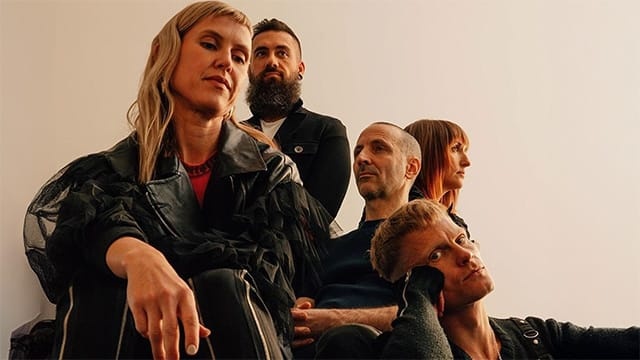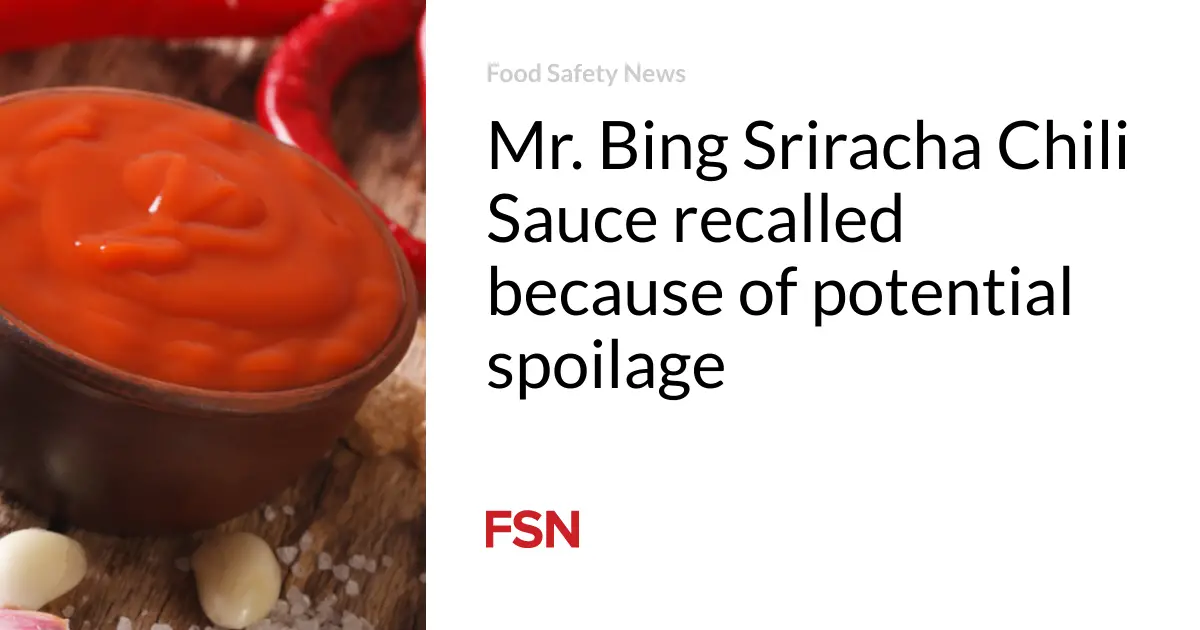
[ad_1]
Since their start in 2005, the group has released nine studio albums, their 2007 and 2008 albums Touch Up and O My Heart having since racked up millions of listeners across streaming platforms. Known for their soundscapes of quirked-up alternative rock and otherworldly androgynous vocals, the five member group has gained international acclaim as an established, odd-ball band, writing unconventional anthems for the alternative underground. And, with the group’s sudden bombshell resurgence on TikTok in 2020, Mother Mother has cemented themselves amidst a new generation of fans, one which embraces the band’s alien soundscape as their own.
The Road to Success
Mother Mother has been performing and producing music for nearly two decades, undergoing various member and sound changes in that time. The group found its start in Vancouver when lead-singer and songwriter Ryan Guldemond recruited his sister Molly Guldemond and her friend Debra-Jean Creelman to put melody to his lyrics, birthing the band’s unique triad vocals. With the addition of drummer Kenton Loewen and bassist Jeremy Page, the band began performing under the name Mother, independently releasing their first self-titled album in 2005. The album earned enthusiastic reviews, launching the group from open mics to high-profile gigs, which in turn bagged the attention of the Canadian label Last Gang Records, with whom the band signed a four album contract, re-releasing the album Touch Up under their new name Mother Mother. The next year, the band released their sophomore album, O My Heart, featuring a new drummer, Ali Saidat. Soon afterwards, Creelman left, replaced later that year by Jasmin Park on keyboard and vocals.
It was only after Mother Mother’s third album in 2011, Eureka, that the band took off, the album’s lead single “The Stand” breaking through the Canada Singles Top 100 chart. Steeped in electro-pop, the new album twisted the group’s heavy themes, extraterrestrial vocals, and alternative rock tradition with a unique 2010s flavor. From its first note to its last, Eureka hurtled listeners amidst a cacophony of musical styles, euphoric and high-strung throughout. Mother Mother’s core sound frayed into the experimental, enchanting critics and fans alike. And, unlike their first couple albums, Eureka seemed to have hit a sweet spot, winning the hearts of just the right people at just the right time. A year later, the band’s single “Bright Idea” was used in a Kraft Foods commercial campaign.
2012’s The Sticks and 2014’s Very Good Bad Thing followed in quick succession, both breaking into Canada’s top charts, the latter reaching number four and earning the group a nomination for Group of the Year in 2015 from the Juno Awards. Later albums No Culture and Dance and Cry further cemented the group’s musical prowess, underscored by new, experimental exploration and a lengthy tour.
These later albums mark even greater deviations from Mother Mother’s initial acoustic landscape into unknown territory, at times wandering down so many rabbit holes that the older atmosphere of their sound becomes unrecognizable. But, Mother Mother has always been swept up in experimentation, their previous albums pushing at some of these same musical boundaries to create anthemic alternative tracks.
I try not to worry about what fans expect, in terms of any sonic aesthetic…Someone’s going to say ‘I wish it was more raw’. Someone will say ‘I wish it was more dense’. But I think both parties will react to a great song.
In an interview with Aesthetic Magazine in 2017, Ryan Guldemond was asked if he felt fans expected a certain sound from Mother Mother. He responded, saying “I try not to worry about what fans expect, in terms of any sonic aesthetic…Someone’s going to say ‘I wish it was more raw’. Someone will say ‘I wish it was more dense’. But I think both parties will react to a great song.” The band had undeniably expanded their musical horizons through the 2010s, journeying into more experimental and techno realms. While some fans missed the nostalgic sounds of their first albums, the group’s strong fanbase and established presence allowed for them to explore beyond their roots, searching for an artistic authenticity that varied with each album and moment in time.
A New Generation of Fans
2020’s COVID-19 pandemic hit the music industry like a punch in the gut, canceling and postponing music festivals, tours, concerts, and award ceremonies across the globe. Artists around the world had to put their careers on pause, hoping, waiting, watching for what would come next, for a way forward. Mother Mother was no exception. In an interview with ABC News, Molly Guldemond describes her feelings of finality. “…We were all faced with this pandemic. We’re at home. We think our career is like, done.”
Little did the band know that they were standing at the cusp of explosive popularity. In 2020, TikTok became the most downloaded app in the world, a cornerstone for popular culture, music, and flash trends, especially for Gen Z. Suddenly, viral clips or dances could shoot any song into the global charts, these flashes of spotlight dubbing the Internet’s current obsessions as “TikTok famous.” Mother Mother soon found themselves trending, clips of some of their older songs, including “Hayloft,” “Burning Pile,” and “Verbatim,” forming the backdrop for a host of trends. And fascinatingly, Mother Mother’s spotlight did not disappear. Unlike other flash trends, the freaky British Columbian band held tight to the Internet’s fickle attention span, remaining one of the most relevant artists on the platform for the better part of 2020, with the lyrics to their song “Hayloft” being the most searched-for song lyrics in the U.S. and second most in the world. “A group of people just came together and started sharing our music, making videos…” describes Molly, later on in the interview. “It was incredible.”
Mother Mother’s tracks were often used in videos dealing with queer and trans identity or dramatic cosplay, with the song “Verbatim” in particular catching fire amongst the LGBTQ+ community as a song challenging gender norms. The band also cemented itself amongst other artists used in the LGBTQ+’s musical code, their song “Hayloft” in particular morphing into an unspoken signal for the nonbinary community in much the same way the lesbian community identifies with girl in red or bisexuals with The Neighborhood’s song “Sweater Weather”. To alternative communities on TikTok, the song’s wailing, staccato-infused chaos lent a soundscape to their own messy struggles with gender.
Moving Forward: The Grief Chapter
Responding to their resurgence on on the social media platform, Mother Mother started their own TikTok account and, to the delight of their new fans, began dueting videos (a function of TikTok in which one’s response video appears next to the original). Frontman Ryan Guldemond seems to be particularly active in connecting with fans, dueting young artists as they sing and riff on Mother Mother songs or simply reacting to videos with questions
Gen Z fell in love with Mother Mother on TikTok. The band’s otherworldly sound and weird vibe matched the odd, unprecedented atmosphere of pandemic-era lockdowns.
and thanks. Speaking with MILKY, he mentioned that “there seems to be a yearning for something that’s a little more unconventional” among Mother Mother’s newest generation of fans, a longing and nostalgia for the band’s original sound apparent in their new fans’ obsession with the group’s freshman and sophomore albums. The band’s latest album Grief Chapter, released this past year, comes in response to this yearning. “We’re returning more to that quirky, eccentric sensibility because the message that we’re getting back from this legion of new young fans is that they like that the most,” says Ryan. “These days we feel more liberated in returning to our roots while also borrowing some of the more modern techniques that we’ve picked up along the way.”
For a group boasting such a rich musical history of ever-changing experimentation and diversity, it seems odd that only Touch Up and O My Heart have been truly re-discovered by young fans. However, Mother Mother chooses to lean into these new demands, “returning to their roots” as Ryan puts it, while maintaining their artistic authenticity as they pursue new avenues of connecting with fans around the world.
Gen Z fell in love with Mother Mother on TikTok. The band’s otherworldly sound and weird vibe matched the odd, unprecedented atmosphere of pandemic-era lockdowns. Loneliness and isolation birthed internal reflection and growth, with more and more young people recognizing and coming to terms with their own odd, quirky, and alternative identities. Mother Mother’s music struck a chord with this new generation of fans, the group’s experimental, extraterrestrial sound reeled them in while intense themes of death, self-discovery, and love hooked them. As a result of the convergence of a global pandemic, a massive video-sharing network of alternative communities, and just a sprinkling of universal guidance, Mother Mother struck gold, connecting with a new generation of fierce fans and oddballs with whom to share their music.
[ad_2]
Source link






